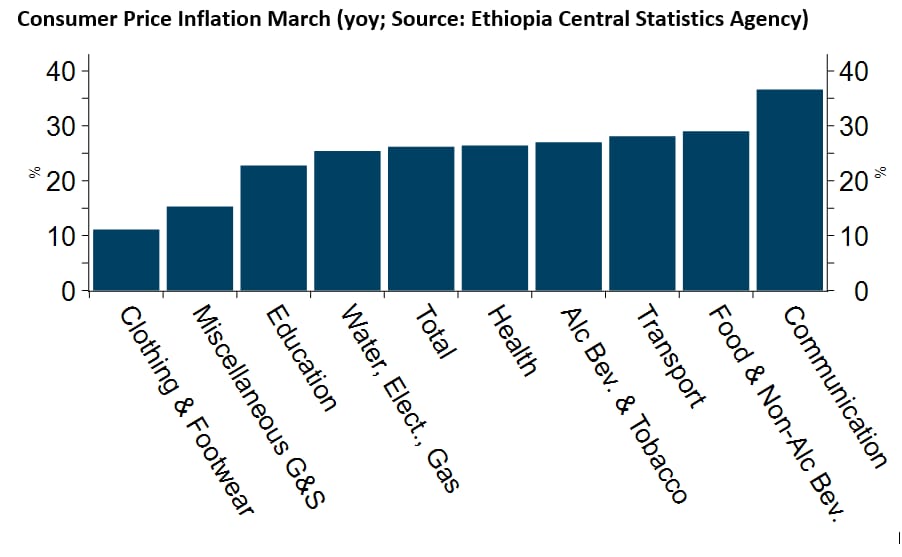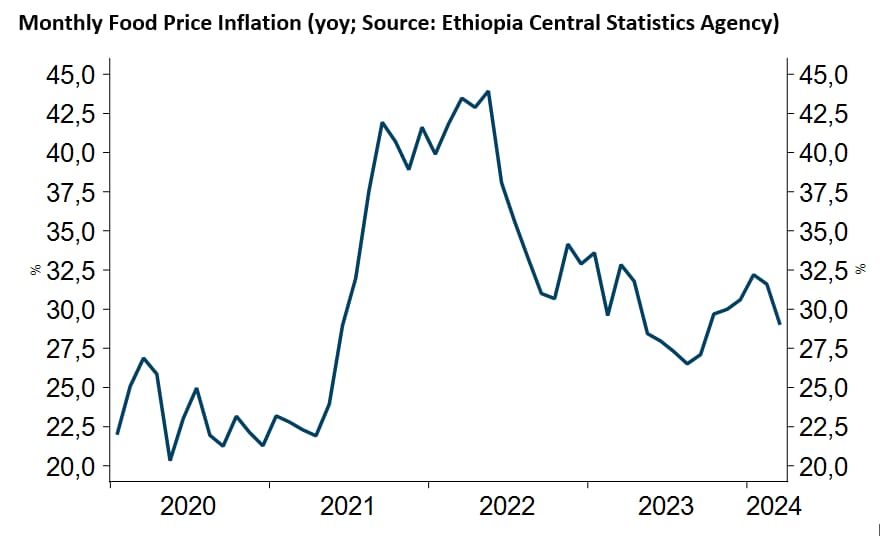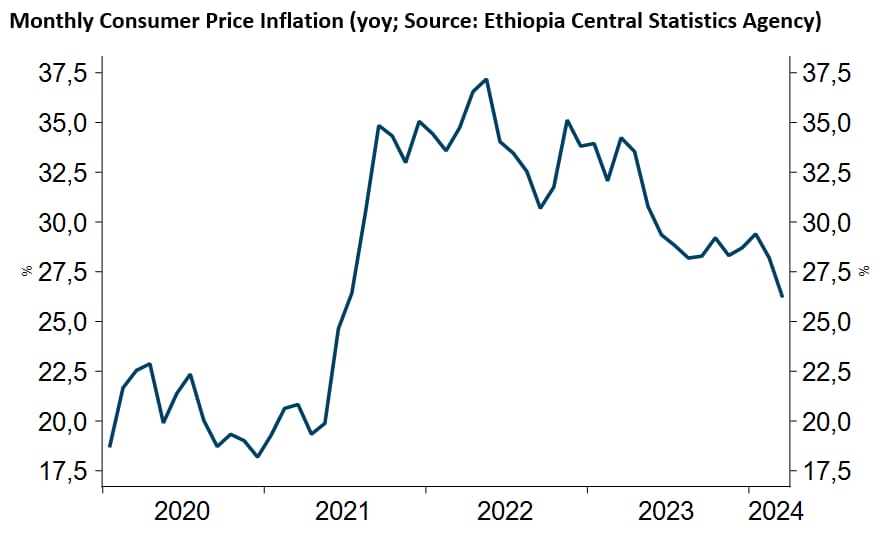Food prices and inflation in Ethiopia have gone down, says ECSA. Ethiopian Central Statistics Agency (ECSA) has released statistics about food prices and inflation.
Consumer price inflation in Ethiopia decreased from 28.2% in February to 26.2% in March. This marks the lowest level since June 2021 and indicates a slight easing of inflationary pressures in the country. The decline in food price inflation from 31.6% to 29% also contributes to this trend.
Possible Positive Steps to Improve the Inflation in Ethiopia
Several factors could be contributing to decrease the inflation in Ethiopia. One possible factor is improved supply chain dynamics or increased agricultural production. Additionally, government policies aimed at controlling inflation may have started to take effect.



Ethiopia’s talks with the International Monetary Fund (IMF) could be a positive step. The IMF can offer financial assistance and advise on economic reforms. If successful, these talks could lead to debt restructuring, making debt payments more manageable and freeing up resources for investments.
Another healthy development for the Ethiopian economy is the recent financing agreement with the World Bank. Earlier this month, The Ministry of Finance of Ethiopia and the World Bank signed six Financing Agreements amounting 1.72 billion USD (approximately ETB 97.35 billion) in the form of credits and grants, for the implementation of six projects aimed at driving sustainable development and inclusive growth in the country.
Industrial parks set up to attract foreign investment have created a significant number of new jobs, especially for young people and women. This helps improve people’s lives and boosts overall economic activity.
Final Words
However, it’s essential to consider the broader economic context in Ethiopia. The country has faced significant challenges, including political instability, conflict, and economic disruptions. These factors can continue to influence inflation in Ethiopia and economic stability moving forward.
This reduction of inflation in Ethiopia could offer some relief to consumers and businesses. However, sustaining this downward trend in inflation will require continued efforts to address the issues. Overall, while the decrease in inflation is a positive development, it’s important to monitor the situation closely to assess whether it represents a sustained trend or a temporary fluctuation.
Other Stories
Telebirr Registration Process – Step-by-Step Guide









More Stories
Ethiopia Mulls New Taxes on Real Estate & Vehicle Transfers
EU Imposes Restrictions on Issuance of Visas for Ethiopians
National Bank of Ethiopia NBE Exchange Rates